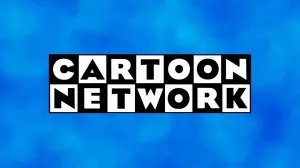
One of the things I was most concerned about coming into The Flash was the inclusion of Eddie Thawne (played by Rick Cosnett). On paper he appeared to be a stereotypical rival. Not only was he the new boyfriend of Barry Allen’s primary romantic interest and a fit, good-looking police officer with loads of charm, but he had the same last name as Flash arch-nemesis Professor Zoom. However, the writers of The Flash have taken what could have been a hackneyed role and transformed it into a character who adds to the ensemble in an unexpected way. That has never been more clear than in “The Flash is Born”.
Videos by ComicBook.com
Eddie has never been overtly unlikable so far, but he has also not been presented with many opportunities to reveal his personality. Aside from some smug one-liners and awkward conversations concerning his relationship with Iris, he’s sat in the background. That’s changed when he pushes Barry to help him on tonight’s case and they begin to form a friendship. What’s revealed is that Eddie is a genuinely nice guy with good intentions. There is no inner darkness or streak of cruelty. He wants to help Barry better himself and truly cares for Iris.
One of the greatest strengths of The Flash is that its cast is composed of good guys. The scientists at Star Labs (with the exception of Wells) and cops of Central City aren’t anti-heroes driven by previous misdeeds or tortured souls forced to struggle with moral quandaries; they’re decent people working to improve the world. There’s nothing wrong with that and it’s a concept that is intrinsic to the superhero medium. Discovering that Eddie is a good cop and a good person subverts the expectations of him being a dislikable rival for Barry. The love triangle is not given the easy out of making Eddie a false choice. He’s a much better fit for Iris than Barry. The focus on him here builds on the strengths of this cast and the show itself.
Tony Woodward (played by Greg Finley), the steel encased villain based on Girder from the comics, is far less likable or complex. He’s presented as someone who was a bully as a child and is still a bully as an adult. As an antagonist, Tony is more like a force of nature than a character, unchanging and driven by a singular purpose. That’s perfectly fine though and it works in the context of this episode. His depiction as a bully helps to highlight the audience’s reversal of expectations with Eddie and drive the drama between the recurring characters of the show. There’s no need for Tony to be anything more than the dumb brute that he is. Finley plays up this caricature of a villain and presents the exact level of cheesiness necessary to make it work. This simple presentation works far better than last week’s far more complicated villain of the week, Plastique.
The steel-skinned powers exhibited by Tony were inconsistent in a way that prevents his confrontations with Barry from holding as much weight as they could. At the beginning of the episode, it appears that he takes the form of steel unconsciously when bullets are deflected from very small portions of his body. As the story continues, he sometimes remains flesh and blood when he would logically make use of his powers. The final solution of punching him very, very fast also felt anti-climactic. No matter how much Cisco and Snow stress the speed and precision necessary, it still feels like a cop out. The show has done a great job of being creative with its use of the speed force and that’s lacking in the climax of this episode.
For as much as “The Flash is Born” improves on many of the flaws in last week’s episode, it does carry over one big flaw: Iris’ meetings with The Flash. The rooftop scene did not work last week and it’s repeated twice here. In each instance, the purpose is the same. Barry repeatedly tries to convince Iris to stop reporting about his activities. It is the exact same dramatic beat, one that has gone from being dull to tedious. Something needs to change in the relationship between The Flash and Iris in order to justify these scenes. As of right now, they are simply filler.
“The Flash is Born” makes far better use of the villain-of-the-week style plotting than previous episodes, using it to explore the cast of characters that make this show very likable. The focus on Eddie was surprising and adds far more to the ongoing narrative than anything Girder possibly could have. It’s a fun episode and one that understands where the strengths of this series lie.
Grade: B+








